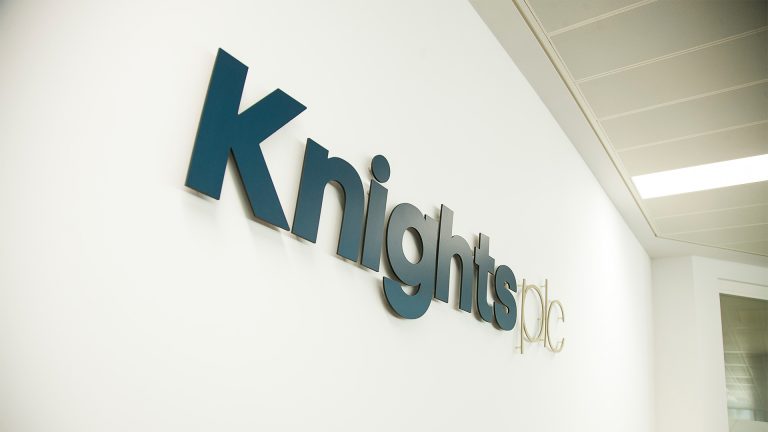Yorkshire and the Humber the fastest regional economy to bounce back from the pandemic
Yorkshire and the Humber’s economy was the least affected by the initial economic impact of the pandemic, according to EY’s latest Regional Economic Forecast.
By the end of 2021, the region’s economy, measured by Gross Value Added (GVA), had recovered to 98.8% of its 2019 size – the fastest regional recovery, followed by the North East (98.5%). By contrast, the UK’s GVA had recovered to 97% of its pre-pandemic size.
The region’s lead relative to other parts of the UK is forecast to shrink, however, with Yorkshire and the Humber’s GVA set to grow 8.8% relative to its pre-pandemic size by 2025 – ahead of the UK average of 8.3% but behind the East Midlands (up 9.5%), the South West (9%) and London (8.9%).
On an annual basis, Yorkshire and the Humber will be the second slowest growing region over the 2022-25 period, expanding by 2.4% on average each year, ahead of the North East (2.3%). This is behind the average annual UK GVA growth of 2.8%.
Employment across Yorkshire and the Humber is forecast to rise by 0.8% each year between 2022-2025, the second lowest UK regional or national increase, in line with Wales (0.8%) and behind only the North East (0.7%). By contrast, London is forecast to see the largest employment increase (1.3%), followed by the South East and East of England (both 1.1%).
Leeds and Harrogate to bounce back after a slow start
The report also highlights the growing gap between the UK’s towns and cities. However, Yorkshire and the Humber has deviated from this trend with Leeds seeing its GVA fall by the equivalent of 0.8% per year from 2019-21 – while the region’s towns saw their GVA fall by 0.5% per year over the same period.
Looking ahead though, Leeds is forecast to bounce back between 2022-25 with annual GVA growth of 2.7%, in line with Harrogate (2.7%) and followed by Barnsley and Sheffield (both 2.6%). Leeds’ favourable outlook is underpinned by a supportive mix of sectors and gains in the administrative & support service and professional, scientific & technical sectors.
Meanwhile, Hull is likely to experience the region’s lowest average annual GVA growth between 2022-25 at 2.1%, underperforming the regional average (2.4%) and behind Bradford and Rotherham (both 2.2%).
Across Yorkshire and the Humber, York is predicted to experience the highest employment growth to 2025 at 1.1% per year. This growth will come predominantly across the human health & social work and wholesale & retail trade sectors.
Suzanne Robinson, Yorkshire and Humberside managing partner, said: “It is promising to see Yorkshire and the Humber’s economy proved so durable during the pandemic, supported by a combination of the region’s resilient manufacturing sector and robust growth in health-related services.
“Looking ahead, the recent progress towards establishing one of the country’s first two carbon capture utilisation and storage (CCUS) developments here in the region establishes a path towards green economic recovery and an increasingly dynamic future for the Yorkshire and Humber economy.
“Across the country, action is needed to ensure the recovery is balanced. It’s important other parts of the country are not be left behind London once again, and steps are taken to combat inequality – both between regions and within them.”
COVID-19 squeezes regional inequality – but only temporarily
The COVID-19 pandemic has helped to narrow the UK’s regional economic divide, but the gap between London and the rest of the country is set to grow again during the post-pandemic recovery, the report finds.
When measured by Gross Value Added (GVA), London’s economic activity dipped 3.6% from 2019 to 2021, compared to a slightly smaller 3% average decline for all UK regions. But, between 2021 and 2025, London’s GVA is forecast to grow by 3.1% per year compared to annual average growth of 2.8% across the UK. Only the East Midlands and South West are currently expected to gain any ground on London over the next three years compared to their pre-pandemic performance – although the capital is on course to pull ahead again after 2025.
London’s forecasted dominance is even more apparent in the labour market, with the capital one of just four UK regions (out of 12) expected to see its working age population grow – by 4.7% – between 2021 and 2025. London is predicted to regain or exceed its pre-pandemic share of UK employment (30.9%) and GVA (39.1%) in 2025 too.
Rohan Malik, EY’s UK&I managing partner markets & accounts, says: “The structural forces driving UK regional economic inequality are deep-rooted and are unlikely to be reversed overnight. Long-term ambitions and sustained, coordinated action are needed to balance growth across the country while ensuring that ‘levelling up’ isn’t simply moving activity elsewhere at London’s expense. The right actions now will bear fruit eventually, but policymakers need to be in this for the long haul.
“Greater flexibility on where people work, aided by the pandemic, could help things. Focusing on what attracts people and businesses to a region, attracting the right mix of sectors and job opportunities, and tackling issues that affect quality of life will be key to taking advantage of this. Retaining young, aspirational talent matters: Manchester, for example, has one of the highest graduate retention rates of all UK cities – and it’s expected to be the UK’s fastest growing city between 2022 and 2025.
“As previous EY research has shown, the UK’s Net Zero and levelling up ambitions go hand-in-hand: the billions of pounds of investment required to reach Net Zero present a golden opportunity to transform not only the environmental sustainability of the UK economy, but its regional balance too. The manufacturing and utilities sectors, for example, are key to the Net Zero agenda – and they are vital to regional economies.”
East Midlands forecast to thrive, but the West Midlands recovery will be slower
All English regions are expected to have regained their pre-pandemic level of GVA by the end of 2023, with only the West Midlands still below its pre-pandemic size by the end of 2022. Twenty per cent of areas in England recovered to their pre-pandemic GVA levels by the end of 2021 – the fastest to do so being digital and science-friendly Reading (where GVA is already 4% above its 2019 level); manufacturing-reliant Solihull (where GVA is still 9% below its 2019 level) is farthest from its 2019 performance.
In a sign of the impact of the pandemic-driven acceleration of changes in the way consumers shop, Lichfield, despite its West Midlands location, is forecast to be England’s best-performing town between 2022 and 2025. From 2023, the town will be home to a new global fulfilment centre for an online retailer and is expected to see its GVA grow 3.6% per year.
Across the UK, service and city centre activities are expected to be the fastest growing between 2022 and 2025, with accommodation and food service expected to improve its GVA by 8.6% per year, followed by other services (up 6.7%), administrative and support services (up 5.5%), and arts and entertainment (up 5.4%). The transportation and storage sector is expected to grow 3.8% per year. By contrast, manufacturing is one of the sectors expected to undershoot the overall annual UK GVA growth (2.8%), with 1.7% growth forecast.
Recruitment Consultant joins Multitask Personnel as South Yorkshire business continues to thrive
Multitask Personnel, the Rotherham based specialist recruitment consultancy, has appointed a new Recruitment Consultant as they continue to strengthen their business support team.
Wensdy McMillan joins the company after previous roles within recruitment and management to work alongside the Business Support Division at Multitask Personnel. In her new position as Recruitment Consultant, she will be finding and attracting the right candidates for roles and clients as well as looking after some of Multitasks key account customers, ensuring their recruitment requirements are fulfilled whilst delivering excellent service.
Wensdy said: “I am delighted to have joined the team at Multitask Personnel, working with likeminded and supportive people. Prior to my post here, I have worked within customer services in contact centres which lead to management roles. At this point I decided to complete my level 3 in CIPD so I could take my first step into recruitment.
“Having worked in many different sectors, it feels like the right fit joining the busy recruitment team at Multitask Personnel.”
Claire Lee, Managing Director at Multitask Personnel said: “We have started 2022 as we mean to go on, and I am delighted that we are continuing with our own personal recruitment expansion here at Multitask Personnel with the appointment of Wensdy.
“Wensdy joins a team of recruiters who specialise in corporate and commercial support roles, who offer temporary, contract, and permanent recruitment services. They provide recruitment support to Office roles and those within Leadership and Management.”
Solicitor appointment boosts private client team of Sheffield-based Wake Smith
Wake Smith has boosted its busy private client team with the appointment of experienced solicitor Stephanie Chung.
Stephanie joins the established 8-strong team lead by director and head of department Suzanne Porter and is hoping to take advantage of her language skills to further links in the city.
Alongside her day to day role advising on Wills, Trust and Probate matters, Wake Smith hopes that as a fluent Cantonese speaker she can offer high quality legal advice to the growing Chinese community in Sheffield.
Stephanie said: “As a firm rooted in Sheffield, Wake Smith has acknowledged the need to offer quality advice to the Chinese community in Sheffield. Elderly issues including mental capacity, Power of Attorney and Wills can be a sensitive issue within this group so I am keen to get referrals and show how Wake Smith can help.
“This is a really strong, enthusiastic team with some fantastic initiatives going on and long standing links to Sheffield. I have previously worked with two team members here already, Colleen Dooney and Annie Wright, and am really looking forward to teaming up with them again, and developing my role further.”
Suzanne Porter added: “Stephanie is a valuable appointment to our team and her dual language skills are an additional asset to Wake Smith.”
Stephanie joins from a niche private client practice in Sheffield where she assisted clients with estate administration, Inheritance Tax Planning, Wills and Powers of Attorney matters.
She completed a law and French degree at the University of Birmingham, and completed the Legal Practice Course (LPC) at the College of Law in Birmingham before qualifying in 2010.
Wake Smith’s Private Client team was highlighted in industry guide The Legal 500 as handling the full spectrum of non-contentious work with particular expertise in probate applications, estate administration, inheritance tax planning and will drafting. It also specialises in elderly client issues, power of attorney mandates and Court of Protection applications.
Yorkshire business confidence soars to highest in the UK
Business confidence in Yorkshire rose 13 points during January to 48% – the highest of all UK regions and nations – according to the latest Business Barometer from Lloyds Bank.
Companies in Yorkshire reported higher confidence in their own business prospects month-on-month, up 16 points to 42%. When taken alongside their optimism in the economy, up 12 points to 55%, this gives a headline confidence reading of 48%.
The Business Barometer, which questions 1,200 businesses monthly, provides early signals about UK economic trends both regionally and nationwide.
A net balance of 29% of businesses in the region expect to increase staff levels over the next year, down by eight points on last month.
Overall UK business confidence remained steady in January, dropping just one point from December’s reading of 40% to 39%. Firms remained positive about their future trading prospects, despite a two-point dip month-on-month to 41%, and were optimistic about the economy overall, reporting a reading of 38%, up one point on December’s result. The net balance of businesses planning to create new jobs in the next twelve months decreased marginally by four points to 29%.
Every UK nation and region maintained a positive overall confidence reading in January, with four reporting a higher reading than last month. Along with Yorkshire, Scotland (up 13 points to 37%), the West Midlands (up nine points to 39%) and the South West (up eight points to 37%) all had stronger confidence readings month-on-month.
Steve Harris, regional director for Yorkshire at Lloyds Bank Commercial Banking, said: “These figures mark a fantastic start to the new year for Yorkshire firms. Despite ongoing inflationary challenges, coupled with market expectations, there are clear signs firms are confident about what coming months will bring.
“The resilience SMEs have shown throughout the pandemic has put them on positive footing. While there will inevitably be bumps on the road ahead as the UK continues its recovery, these latest findings give us cautious optimism that investment and growth will be defining features of the year ahead.”
Industry sector performance was mixed during January with confidence among manufacturers increasing by three points to 43%, reaching its highest level for three months due to an easing of supply chain pressures. Retail confidence also rose (up one point to 44%) while confidence among firms in IT/communications remains particularly strong at 72%.
The impact of Omicron over the festive period meant the service sector extended its recent run of modest decreases in January, dropping one point to 38%. Positively, hospitality has recovered some of December’s decline, rising from 6% to 38%.
Hann-Ju Ho, senior economist for Lloyds Bank Commercial Banking, said: ““January’s survey shows a continued resilience with minimal fluctuation as economic optimism remains at a historically strong level.
“A larger decline in confidence was potentially prevented by the reduction in Covid infection rates from early January and the prospects of the easing of restrictions across the UK.
“However, businesses remain cautious about the pandemic and are facing into challenges from rising cost pressures although many are raising their prices in response.”
Knights becomes top law firm in York and expands East of England presence
Knights, one of the UK’s fastest growing legal and professional services businesses, today announces that it has agreed to acquire Langleys Solicitors LLP (“Langleys”), a leading independent law firm in York and Lincoln.
Acquisition rationale and background
Langleys, established in 1890, brings a further 72 fee earners to Knights, significantly strengthening the Group’s presence in York. The acquisition will also allow the Group to further expand its operations in the East of England by providing entry into Lincoln, an attractive growth market for legal and professional services.
The acquisition of Langleys is in line with the Group’s strategy to accelerate its organic growth through carefully targeted acquisitions which are a strong cultural fit, with the firm’s real estate and corporate offerings being closely aligned with Knights’ existing services. Langleys has particular strength in private wealth, where there is significant growth potential.
Langleys also operates a legal aid child law (CL) business within Langleys LLP and a volume residential conveyancing business through a subsidiary, Home Property Lawyers Limited (HPL), which have 5 and 64 fee earners respectively. These businesses are included in the transaction perimeter but are non-core to Knights and as such the strategic options for them will be reviewed.
In its unaudited accounts for the year ended 31 March 2021, Langleys reported revenue of c£14m with a corporatised PBT margin of c5%. Approximately two thirds of revenue is in respect of the core Langleys business (excluding the HPL and CL businesses). Following full integration and realisation of all synergies, the Board expects the core business to contribute a PBT margin of c20% which, combined with a typical level of revenue churn post-acquisition, means the acquisition is expected to be immediately earnings enhancing.
Terms of the acquisition
Under the terms of the acquisition, Knights will acquire Langleys from its four existing equity partners (“the Sellers”) on a debt free, cash free basis for a total consideration of £11.5m subject to working capital adjustments at the time of completion. This comprises an initial consideration of £8m, made up of £5.25m in cash and £2.75m in 704,515 new ordinary shares in Knights, (the “Consideration Shares”), along with deferred cash consideration of £3.5m to be paid in equal instalments over the three years following completion. The cash consideration will be satisfied from Knights’ existing facilities. Completion is expected to take place on 25 March 2022.
Commenting on the acquisition, David Beech, CEO of Knights, said: “We are delighted to announce the acquisition of Langleys, a leading firm that has a strong cultural fit with Knights and expertise closely aligned with our existing services. The acquisition sees us become the leading law firm in York and provides a strong base for organic growth in the East of England through Lincoln, as we continue to strengthen our position as the leading legal and professional service business outside of London.”
Tim Cross, Partner, Langleys commented: “Having built a strong reputation over a number of years, now is the right time to join Knights, whose growth journey we have followed in York and elsewhere across the regions. We believe Knights’ scale, ambition and ability to invest will enable us to unlock
Manufacturing Task Force launched by Mayor of West Yorkshire
A West Yorkshire Manufacturing Task Force has been set up by the Mayor of West Yorkshire, bringing together fourteen representatives from manufacturing companies and alliances across the region to assess the manufacturing landscape and identify opportunities to support the continued growth of the sector.
At a virtual meeting today, the Task Force continued discussions on the current business support landscape, the need to secure inward investment and remain an attractive region and what local manufacturers need to meet the region’s 2038 net-zero carbon target.
Task Force meetings will be held over the next six months, chaired by Andrew Wright, Deputy Chair of the West Yorkshire Combined Authority Business, Economy and Innovation Committee. Manufacturing experts will explore best practices and solutions to immediate and future challenges and share an action plan with recommendations on the support needed to help local businesses remain competitive, addressing areas including the transition to net-zero, new trading relations, access to finance and how to increase productivity and innovation levels.Tracy Brabin, the Mayor of West Yorkshire, said: “I’m excited to launch the West Yorkshire Manufacturing Task Force with a fantastic team of expert local manufacturers who are coming together to create an action plan for how our businesses can grow and remain competitive.
“West Yorkshire is home to more manufacturing jobs than anywhere else in the North, and I want us to do all that we can to take our world-class manufacturing sector forward.
“Our Manufacturing Task Force has been set up to explore how we can achieve this, whether that be by increasing their innovative activity, creating the products of tomorrow, today, taking bold steps to enter the global market or planning ahead to ensure they have the manufacturing skills and capabilities needed for our future economy.”
The Mayor of West Yorkshire will sign off the action plan. The West Yorkshire Combined Authority will consider the findings to deliver future support for local manufacturing businesses in partnership with local partners and stakeholders.
Findings from the Task Force will support existing strategies and policies of the Combined Authority, including the Business Productivity and Resilience Plan, Innovation Framework, Employment and Skills Framework and the emerging West Yorkshire Trade Strategy.
Yorkshire businesses impacted by Omicron as early financial distress rises in final quarter of 2021
Despite some signs of economic recovery earlier last year, the final quarter of 2021 saw a marked rise in instances of early-stage financial distress compared with the previous quarter as businesses in Yorkshire, along with the rest of the UK, reeled from the impact of the latest Covid variant, following two years of pandemic disruption.
According to the latest Red Flag Alert data, published today (28 January 2022) by leading independent business rescue and recovery specialist Begbies Traynor, businesses in Yorkshire experienced a 4% rise in ‘significant’ distress (which refers to businesses that have had CCJs of less than £5,000 filed against them) in Q4 2021, compared with the previous three months. This was slightly lower than the rest of the UK which experienced a quarter on quarter increase of 5%. In Yorkshire, over 34,200 businesses saw this type of distress in the final quarter of last year, and more than 589,160 businesses across the UK were affected.
However, looking at Q4 2021, levels of ‘significant’ distress in Yorkshire had fallen by 8% compared with the final quarter of 2020, while there was a 6% decrease across the UK as a whole year on year.
In terms of levels of more advanced or ‘critical’ distress (which refers to companies that have financial problems such as CCJs of more than £5,000 filed against them), in Yorkshire there was a rise of 12% compared with Q3 2021 while the UK as a whole saw only a slight rise of 1%. The region also experienced a 46% increase in advanced distress compared with the same period the previous year, while the UK average was an uplift of 7% compared with Q4 2020.
Julian Pitts, regional managing partner for Begbies Traynor in Yorkshire, said: “Businesses in Yorkshire, like those across the UK, have been on a rollercoaster ride of change and uncertainty over the last two years, making planning and forecasting extremely difficult. The unprecedented challenges they have faced range from stop-start operations amid successive lockdowns, to adapting to ever-changing Covid restrictions, and now dealing with ongoing issues around severe staff shortages and global supply chain disruption.
“While financial distress in the region appeared to be levelling off earlier in 2021, with the impact of a new and highly infectious variant right before the normally busy Christmas season, we are already seeing a worrying rise in signs of early-stage financial problems.”
In Yorkshire, almost all sectors saw a rise in ‘significant’ distress since the previous quarter with printing and packaging (up 8%), and support services and utilities (both increased by 7%) among the worst hit. In addition, travel and tourism, financial services, real estate and property services, and manufacturing all saw early distress rise by 5%.
Mr Pitts continued: “After such a difficult period, unfortunately the year ahead also looks fraught with problems for the region’s businesses. The additional pressure of rising prices and inflation as energy costs increase dramatically, are likely to squeeze both businesses and consumers. While the government appears reluctant to provide more help for firms impacted by the latest Omicron outbreak, businesses will also be faced with the withdrawal of pandemic support measures and tax rises. With tough times ahead, we once again advise directors to seek professional advice at the first signs of financial distress when more options will be open to them.”
Annual (2021) insolvency statistics – R3 response
Eleanor Temple, chair of insolvency and restructuring trade body R3 in Yorkshire and a barrister at Kings Chambers in Leeds, comments on the 2021 corporate and personal insolvency statistics for England and Wales:
Corporate insolvencies
- There were 14,048 underlying corporate insolvencies in 2021 – an increase of 11.2% from 2021’s figure of 12,634, but a fall of 18.2% on 2019’s figure (17,166)
- There were 110,022 personal insolvencies in 2021 – a fall of 1.4% on 2020’s figure of 111,578, and a fall of 9.9% compared to 2019 (122,155)
Bradford concrete admixture manufacturer builds new future on strong foundations
A Bradford-based manufacturer of concrete admixtures has heralded a new chapter following its investment in a new standalone company within the Christeyns group this month.
Oscrete UK Ltd is one of the UK’s leading specialist construction chemical suppliers and has operated as a division within Christeyns since 1983 having originally been part of the historic, former Bradford Oils and Soaps company which was founded in 1874.
The business, which continues to share its Rutland Street premises with Christeyns UK in Bradford, is committed to becoming the UK and Ireland’s leading supplier of admixture and additive products which are used in the construction sector.
Director Scott Wilson, who has headed Oscrete since 2018, said the team’s passion for sustainable growth and a commitment to continuously improving customer operations is a core focus under the new Oscrete UK Ltd operation.
“Oscrete has operated successfully as a division of Christeyns UK Ltd for almost 40 years and while we have hugely valued the support and the resources the wider business offers, the time is now right to invest in Oscrete and our construction activities and focus entirely on our core markets and further developing our expertise.”
He added: “The pandemic forced a period of real challenge in our construction customer base, quickly followed by substantial growth. We’ve recognised we need a bespoke business model dedicated entirely to our industry which will facilitate growth, new product development and specialist recruitment.”
Oscrete UK Ltd is a manufacturer of concrete admixtures for precast and ready-mix concrete and the ready-to-use mortar industries. The team manufactures a range of high performance super-plasticising admixtures, waterproofing agents and products to control moisture damage in construction. Its technical team focuses on NPD to add value and meet specific customer needs.
Scott added: “Operating independently will also allow us to develop systems which complement those of our customers and to place even greater focus on customer service, new product development and continuing to develop our supply chain expertise.
“It’s an incredibly exciting time for the construction sector with a strong emphasis on sustainable growth and continuous improvement We are looking forward to taking our brand, our family values and our expertise into a new chapter for the Oscrete UK business and embracing the new challenges of this thriving building sector.”
Leeds alterations business launches winter clothes drive for the homeless
Chapel Allerton-based clothing alterations business The Zip Yard has launched a winter clothes drive in partnership with Leeds charity Homeless Street Angels.
Customers of The Zip Yard and other local residents are being encouraged to drop off their unwanted warm winter clothing to The Zip Yard store in Chapel Allerton for distribution via the charity to those living on the streets or struggling to make ends meet. As part of the drive, The Zip Yard is offering their seamstresses skill free of charge to repair any donated items.
Neluka Dunning, owner of The Zip Yard Chapel Allerton, said: “We wanted to give something back to the community, and the very nature of our business means people are always bringing in their clothes for repairs and alterations. As part of the Winter Clothes Drive with Homeless Street Angels, we’re offering our services to repair items brought in by the public so that they are all in good condition to go on and keep people warm in the continuing cold weather.
“At this time of the year, lots of people are having wardrobe clear outs and replacing older items with new ones received at Christmas or bought in the sales, so it’s the perfect time to drop off coats, hats, thermals, gloves and thick winter jumpers. Homeless Street Angels do an incredible job of providing food, sleeping bags and clothing to those who need it, and we’re looking forward to helping them distribute donations.”
Shelley Joyce, co-founder and director of Leeds Homeless Street Angels, added: “Winter is a particularly difficult time for those living on the streets – the temperature often dips below freezing and Covid has meant there are less people out and about who might have previously gifted items or provided warm drinks.
“Support from local businesses like The Zip Yard is incredible for us, and the winter clothes drive will give individuals the opportunity to give otherwise unused items that might have gone to landfill or charity shops straight to our clients who need them right now. It’s a brilliant initiative and we hope people will utilise The Zip Yard drop off point when they are clearing out their wardrobes.”
Those wishing to donate items can drop them off at The Zip Yard Chapel Allerton store, Chapel Allerton House, 114a Harrogate Rd, Leeds LS7 4NY.












